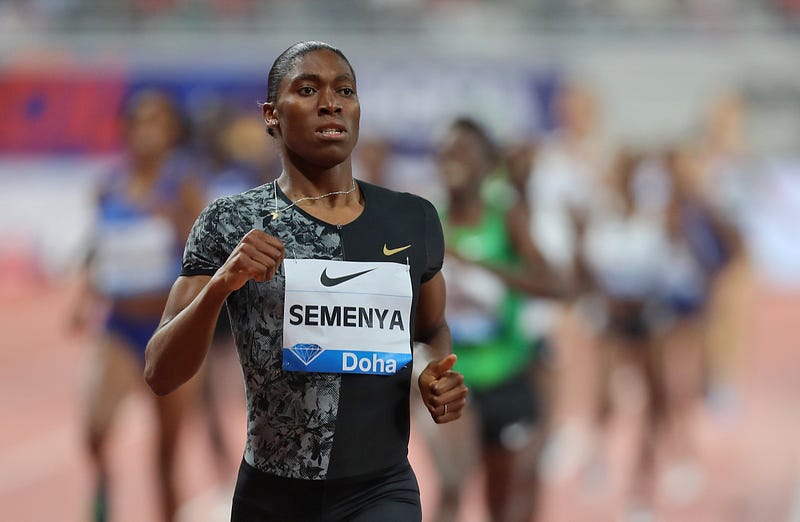Caster Semenya's Ruling: Controversy Over Gender Definitions
Written on
Chapter 1: The Court's Decision
In a recent ruling against Olympic champion Caster Semenya, the highest authority in international athletics has established a stringent criterion for classifying individuals as male or female based solely on testosterone levels. This verdict from the Court of Arbitration for Sport has ignited significant backlash from human rights organizations and medical professionals, who label the approach as "unscientific" and caution that it sets a perilous example for using biological criteria to justify discrimination.
Semenya, a South African athlete renowned for her speed, is believed to have hyperandrogenism, a condition where the body produces hormone levels more commonly associated with males. She has contested the International Association of Athletics Federations' (IAAF) 2018 rule, arguing that it discriminates against her by mandating female athletes with elevated testosterone levels to undergo medical treatments to lower their hormone production to compete.
Since her remarkable victory at the 800-meter world championships at the age of 18 in 2009, Semenya has faced scrutiny regarding her physique. Recently, she expressed her belief that the IAAF's regulatory measures have consistently targeted her.
The IAAF defends its regulations as necessary to maintain "fair and meaningful competition," clarifying that they do not aim to pass judgment on any athlete's gender identity.
Section 1.1: Intersex Conditions and Their Implications
Semenya's situation highlights a broader discussion about intersex conditions, where individuals possess traits that blend male and female characteristics. Such variations can manifest in diverse ways, including males with female reproductive organs or females with male internal anatomy. Some individuals may appear female yet have heightened testosterone levels, while others may seem male but possess XX chromosomes.
Research indicates that intersex conditions might affect as many as 1.7% of the population, while other studies suggest a lower prevalence. There are approximately 50 to 60 recognized intersex subtypes, most of which are genetic and affect sex hormones or reproductive anatomy. Public awareness about intersex issues is increasing, aided by media representations and personal accounts advocating for a departure from rigid gender binaries.

Chapter 2: The Broader Discussion
As many regions progress toward a more inclusive understanding of gender identity, several countries and U.S. states have sought to prohibit unnecessary surgeries on intersex minors aimed at conforming their anatomy to typical male or female standards. Critics argue that such conditions should not be "corrected" but rather embraced as part of human diversity.
Semenya's case revolves around an intersex condition linked to testosterone, a hormone often associated with physical strength and athletic performance. The Court of Arbitration for Sport decreed that female athletes with elevated testosterone will not be allowed to compete in events like the Olympics unless they lower their hormone levels through medication.
The ruling's implications are profound, as it raises questions about how we define gender in sports. Justin Garcia, a research director at Indiana University, argues that gender cannot be easily categorized; both men and women produce testosterone, and there is considerable variation among individuals. Some studies even suggest that women in high-risk careers may have elevated testosterone levels.
Experts agree that while testosterone can influence sports performance, factors such as training, determination, and access to resources play equally important roles. Excluding Semenya from competition based on her natural hormone levels could be likened to disqualifying athletes with other natural advantages, such as height or reach.
This ongoing debate raises critical ethical questions about how society views and treats athletes with intersex conditions. As noted by researchers, the current regulations perpetuate outdated stereotypes of femininity and do not accurately reflect the complexity of biological sex. The United Nations Human Rights Council has labeled the IAAF's rule as "unnecessary, humiliating, and harmful," calling for a reevaluation of such policies.
Ariana Eunjung Cha is a national reporter with a background as the bureau chief for The Washington Post in various locations, including Shanghai and San Francisco. Follow her on Twitter @arianaeunjung.
The Washington Post’s Lenny Bernstein contributed to this report.
© 2019, The Washington Post